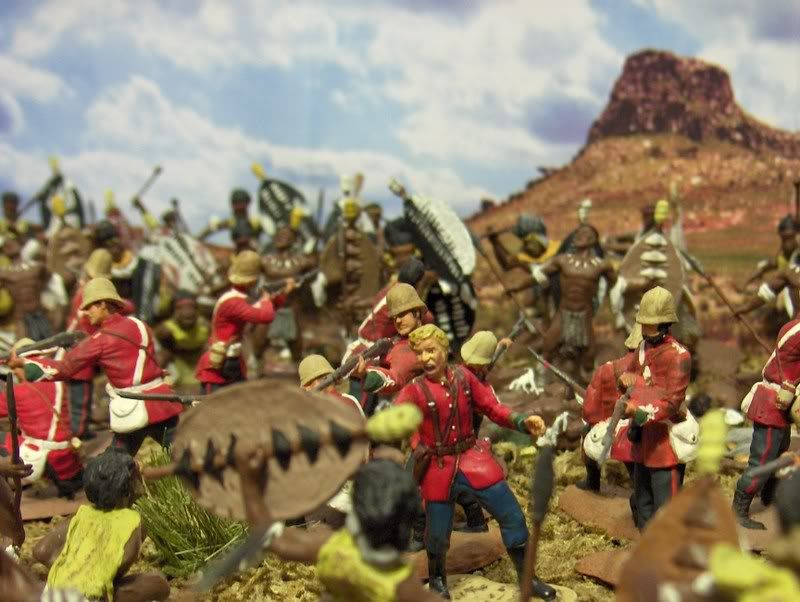damian
Captain
- Joined
- Feb 7, 2007
- Messages
- 5,008
njja
You raise an interesting theme which has always fascinated me re: British/US Armies fighting Native armies who used unorthodox tactics.
Armies fought their campaigns on the basis of lessons learned from the previous ones. The British Army's tactics of 1879 were based on primarily Waterloo all the way through to the Crimea and sending observers to other wars that the Brits were not party to such as the US Civil War. The Brits tactics of disciplined fire-power under order had always worked for them but most of their opponents had used the very same tactics.
But the Zulu and on your side of the pond in the case of the US Army against the Plains Indians neither conformed to the book of tactics, these native armies did not learn lessons in the formal classroom sense, they appeared more astute, more observant and more flexible than their "high-tech" army counterparts. They used decoys, camouflage, concealment, they exploited the tactical advantages such as exposed ridgelines and terrain. Zulu & Indian expertise drew on collective practical experience, which formed part of their extensive training from boy-hood to mature warrior. Nothing was missed.
But the Brits/US Army experience required formal drilling and training that did not lend itself well in vast open spaces searching for an indigenous people and we now know it's application against the Zulu in 1879 and the Sioux in 1876 appeared to be completely irrelevant. And the actions of Chelmsford and the inexperienced Pulleine are indicative of the above doctrine within the British Army that these Zulu would be unable to match the British disciplined fire-power. Very much like Custer at the Little Big Horn who had been indoctrinated with similar tactics during the Civil War.
Now imagine being one of those red-coated Brits as shown in Joe's outstanding dio pics- courageous no doubt but their must have been some incredulity amongst them as manouvering to counter the mass of Zulu coming at them from every direction would inevitably reduce the battalions fire-power. They were staring defeat in the face, everything they had been told by their Officers and NCO's about the enemy was being completely contradicted by events going on around them and their endless drill of forming a battle line to pour fire into the foe was having absolutely no effect on this mass of black chanting warriors in front, beside and eventually behind them. Hard to imagine their final thoughts of "this just should not be happening Sergeant Baines said we would walk all over them" as their bodies were lacerated and wripped apart by a dozen assegais and their skulls cracked open by knobkerries. Scary or what!
Reb
Well there is a school of thought, (mine at least) which would suggest that the Zulu were just as unable to adapt as teh British. Whe lead the more successful struggle against white and British colonial expansion in SA, the Xhosa on the Eastern Cape Frontier or the Zulus? Remeber the intila frontier wars the Xhosa had attemtped to storm Grahamstown and had been defeated by firepower. Now that was back in 1820 ( The exact date escapes me) After that frontier war there were several others where the Xhosa successfully used geurilla tactics to wear down the colonial forces. Teh struggel between the Brits and the Xhosa lasted almost 100 years.
Chelmsford was hoping for exactly what he got, a massed frontla attack. Part of the reason he was caught with his pants down was that he expected a geurilla type campaign I don't think for teh life of him he expected a full on attack on his camp. The Zulus attacked Islandwana and Gingindlovu on the same day. However they too failed to learn and at Ulundi paid the price. The frontier wars have largely been forgotten. Neil Mostert's superb book "Frontiers" is well written and researched. However teh Xhos struggle for independence lasted longer and ultimatley gave the world Nelson Mandela the man who finally won some sort of freedom for the African people of SA.
Regards
Damian




